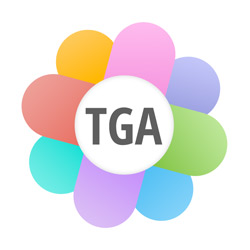Cross-Platform Mobile App Development

Smartphone usage makes our life very fast and simple. To win the race of modern competitive world everyone opts to have latest devices. There are a large number of new devices to choose and are with different operating systems. Developers have to work very smartly for building mobile applications quick and efficient and deliver on time to fulfill their needs. To create native mobile apps for each device needs scratch start. Hence it will be costly and time-consuming too. So best idea to use the cross-platform to reduce costs and efforts for development of mobile applications.
Cross-Platform Mobile App Development means in simple words, which application development framework is used to create mobile apps running on multiple OS like ios, android and windows devices. It's a rapid development process because 50% to 80% source code can reuse which developed for a single native application. In my knowledge, one of the best cross-platform is Adobe PhoneGap that helps to create such apps.
IOS and Android — both platforms are crucial for a successful mobile strategy. While developing a mobile business app, it becomes most difficult to select one platform modernization and to give preference, both the platforms are equally important and popular. It is also challenging and tedious process for a company with limited resources to develop a mobile app for both the platforms. So business owner and mobile development company both are in trouble together. Fortunately, a cross-platform mobile app development framework has the answer to simplify the difficulty.
Cross-Platform Apps vs Native Apps - A simple comparison:
Cross platform apps
Wide reach by multi-platform distribution
Quick and cost saving
Easier Implementation
Native apps
Limited audience - single platform users
Vital skills required for making native apps
Each version needs scratch start so costly and time-consuming too
Top three cross-platform frameworks in the eyes of modern developers.
1. Adobe PhoneGap
Phonegap is a free and open-source framework that allows you to create mobile apps using HTML, CSS, and JavaScript. It's a widely adopted technology for cross-platform mobile app development and has been developed by Nitobi Software (now Adobe). PhoneGap is using single codebase and can be used for developing multiple mobile apps, hence highly recommended for a cost-effective app projects.
Benefits
- Using single codebase create multiple apps for iOS, Android, Windows Phone, and mobile web.
- Launching the app on both crucial platform App Store and Google Play simultaneously
- Testing app become fast and easy
- PhoneGap used to go to market faster
- Solid backend support
- Expert developer skill not require
2. Ionic
Ionic is a powerful open-source framework which is used to build hybrid mobile apps using HTML, CSS, and Javascript. Mobile app UI design interactivity is the main purpose of Ionic. Ionic Mobile App Development services allow customization of a mobile app for multiple platforms like iOS, Android and Windows
Benefits
- Easy to adopt
- Completely free open-source
- Mainly developed in HTML, CSS, and JS which almost all the developers are familiar with.
- Beautiful inbuilt UI elements - developers can pick and choose instead of coding
- Huge Community support
- Lowest project cost
3. Xamarin
Xamarin cross-platform allow to creating Android and iOS apps. Xamarin extends the .NET platform with the tools, libraries and makes the .NET developer a native mobile app developer overnight for iOS, Android, and Windows.
Benefits
- Native UI
- Compiles apps in a native form.
- Xamarin has a library which allows you to write native UIs for once and then these can be shared and converted to other platforms.
- Supports Android, iOS and Windows platforms.
- Mainly focus on UI and back-end.
- Less bugs
- Huge community and Support
Once you write code which can use for every OS, cross-platform development doesn't require to develop platform-specific versions for each app. Tt's amazing and of course, it is one of the most significant benefits, especially for development agencies, not to spend extra time and when it comes to per hour work, reducing cost too.
Also get more benefits to access features of native apps, like address book, camera, etc. which functionality that is restricted in a web-based app. Growing demands of smartphone ownership allowed the app analyst to predict that by the end of the year, more than 50% of total app development will be cross-platform.
The cross-platform mobile app development framework is able to take the maximum benefit of all platforms it is developed for and the disadvantages posed by web-based apps can be eliminated and serve to accommodate the growing demands.
About The Author
Related Blog
View All-
Top 9 Android Apps For Entrepreneurs
Entrepreneurs are one of the most important people in the society. Being an entrepreneur is a very exigent task when it comes to stay organized and managed about the company or the business. But, with Android smartphones these management tasks are becoming easier ...
-
How To Have a Career as an App Developer
Anyone with a smartphone will use them every day - whether it’s to send a message to a loved one, post a photo online, check your emails, or watch a TV programme, you’ll use an app to carry out these tasks. If you’ve got an interest in programming ...







